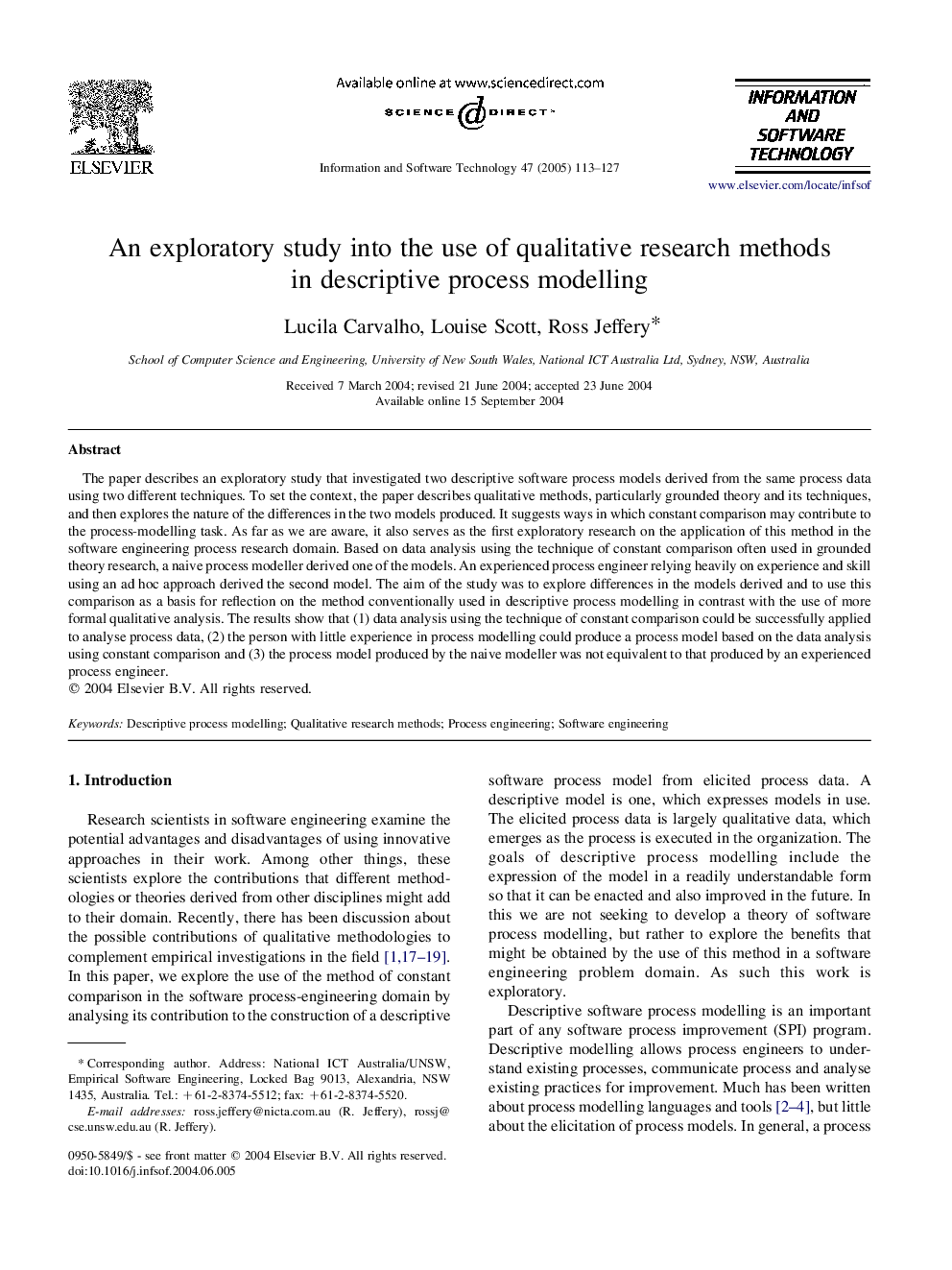| Article ID | Journal | Published Year | Pages | File Type |
|---|---|---|---|---|
| 10367185 | Information and Software Technology | 2005 | 15 Pages |
Abstract
The paper describes an exploratory study that investigated two descriptive software process models derived from the same process data using two different techniques. To set the context, the paper describes qualitative methods, particularly grounded theory and its techniques, and then explores the nature of the differences in the two models produced. It suggests ways in which constant comparison may contribute to the process-modelling task. As far as we are aware, it also serves as the first exploratory research on the application of this method in the software engineering process research domain. Based on data analysis using the technique of constant comparison often used in grounded theory research, a naive process modeller derived one of the models. An experienced process engineer relying heavily on experience and skill using an ad hoc approach derived the second model. The aim of the study was to explore differences in the models derived and to use this comparison as a basis for reflection on the method conventionally used in descriptive process modelling in contrast with the use of more formal qualitative analysis. The results show that (1) data analysis using the technique of constant comparison could be successfully applied to analyse process data, (2) the person with little experience in process modelling could produce a process model based on the data analysis using constant comparison and (3) the process model produced by the naive modeller was not equivalent to that produced by an experienced process engineer.
Related Topics
Physical Sciences and Engineering
Computer Science
Human-Computer Interaction
Authors
Lucila Carvalho, Louise Scott, Ross Jeffery,
